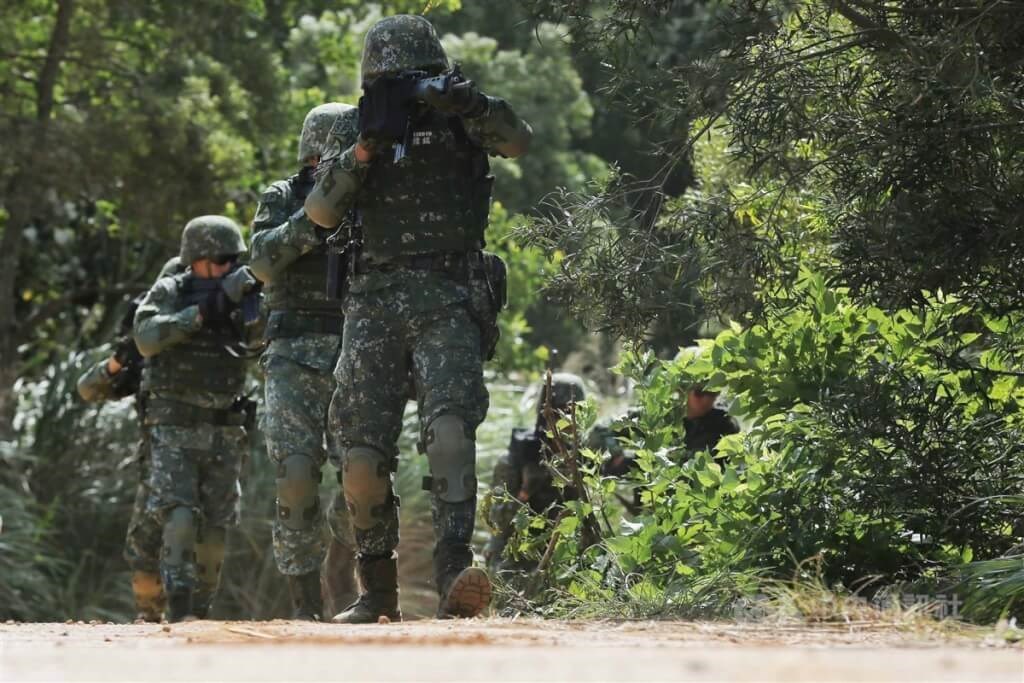Washington, April 10 (CNA) A U.S. think tank suggested, in a recent report, Taiwan boost defense spending to meet its needs given the threat from China and that the U.S. ensure timely delivery of essential military capabilities.
Global Taiwan Institute (GTI), based in Washington D.C., released “U.S.-Taiwan Relations: Advancing Four Pillars of the Strategic Partnership,” to mark the 46th anniversary of the Taiwan Relations Act, which set the foundation for continued ties between the U.S. and Taiwan following the former severing diplomatic ties with the Republic of China (Taiwan) in 1979.
The report assessed how the strategic partnership has evolved across four key pillars — security, international space, economic ties, and people-to-people relations — and offered forward-looking policy recommendations to sustain peace and stability amid rising challenges from China.
In terms of national defense and security, the GTI suggested that Taiwan should increase its defense budget to enable procurement of capabilities necessary to secure its national defense and sustainment needs against a full range of attack from China and coercion scenarios.
However, the report noted that the exact percentage of GDP assigned to that task is less important than Taipei demonstrating the will and ability to respond effectively to the complex and evolving Chinese threat.
On the U.S. side, the GTI suggested Washington strengthen its defense industrial base to enable more timely provision of essential military capabilities to Taiwan and help enhance the island’s own indigenous defense industrial capacity.
The GTI urged the U.S. to improve joint planning and training with Taiwan to counter military, coercive, and gray zone threats, ensuring the island’s defense and resilience.
Taiwan’s military and citizenry in turn must invest more seriously in such preparations, the GTI added in the report.
Meanwhile, at a forum held on Thursday in Washington D.C. to launch the report, Brent Christensen, former director of the American Institute in Taiwan, dismissed the idea of Taiwan spending around 10 percent of its GDP on defense as unrealistic.
The idea that Taiwan should raise its defense spending to around 10 percent of GDP was most recently mentioned by Elbridge Colby during a Senate confirmation hearing in early March.
“I agree with President Trump that they should be more like 10 percent, or at least something in that ballpark, really focused on their defense,” said Colby, who was confirmed as U.S. undersecretary of defense for policy early this week.
In contrast to Colby, Christensen argued that it is not necessary to get too fixated on what percentage of GDP is being spent on defense.
Taiwan’s defense spending, as a percentage of GDP, likely underrepresents broader investments in civil defense and societal resilience, which are integral to the overall defense strategy that Taiwan is adopting, said Christensen, a co-author of the report.
Taiwan’s Cabinet earmarked NT$647 billion (US$20.02 billion) for defense spending in 2025, equal to 2.45 percent of GDP, some of which was later cut or frozen by the opposition-controlled Legislature.
The Ministry of National Defense reported in early March that NT$8 billion from this year’s defense budget had been cut, with an additional NT$90 billion frozen.
President Lai Ching-te (賴清德) later pledged to propose a special budget to raise defense spending to over 3 percent of GDP, though that, too, would require legislative approval.
